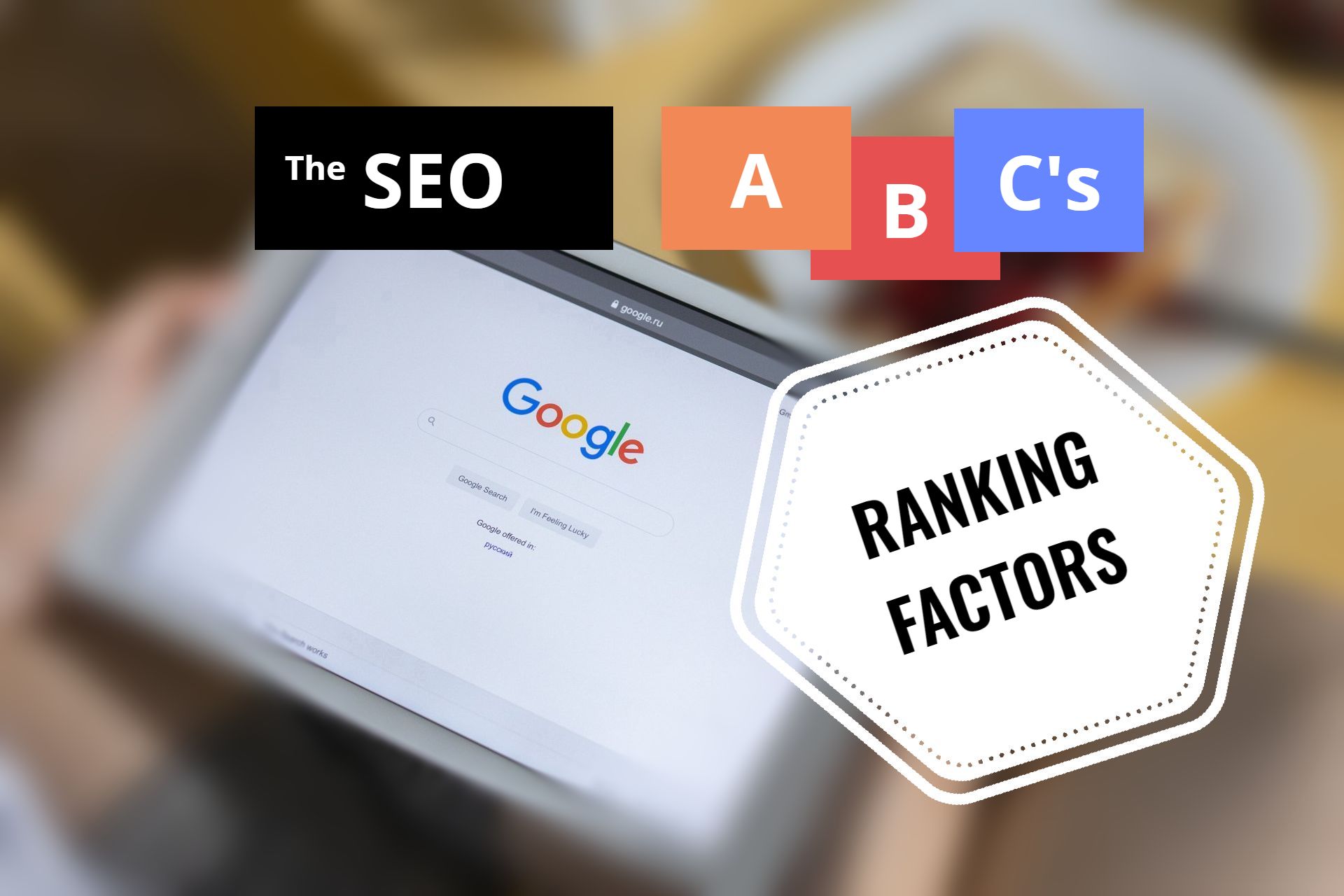
8 Common Causes of SEO Strategy Failure

In my last article, 5 Compelling Reasons to Hire a Digital Marketing Consultant, I chronicled my discussion with a local executive about their company's strategic plans to grow its digital client base. Particularly interesting was that their company's name (doubling as a highly coveted keyword phrase) had essentially gifted it a top-5 search engine results page ("SERP") position as a starting point. As such, they probably felt pretty good about skipping SEO altogether and focusing instead on cultivating user experience (UX) and driving conversions. Hey, kudos to them!
Unfortunately, for the rest of us, SEO is usually far more involved and, at times, even a bit mysterious. In fact, despite implementing carefully planned SEO strategies, many companies need help to achieve their objectives. So, in this article, we'll explore eight common causes of SEO strategy failure.
First Things First - What's SEO Strategy?
Many of you may be pretty familiar with the principles of SEO. But, for the less experienced marketers in this arena, let’s take a minute to walk through the basics. An SEO (Search Engine Optimization) strategy is a planned approach to improving a website's visibility and organic (non-paid) search engine rankings through a series of techniques that align aspects of a website with search engine algorithms and user intent. An SEO strategy aims to translate search engine performance into targeted, organic traffic to your website.
Effective SEO strategies typically include:
- Keyword research to identify relevant and high-value keyword search terms
- On-page optimization to signal the relevance of your content to a search query and amplify its ranking value
- Technical optimization to help search engines index and crawl your content more effectively and accurately
- UX optimization to enhance your website's usability and engagement
- Link building (acquiring quality "backlinks") to increase your website's authority and credibility and,
- Monitoring and analysis of key metrics that can help you identify and resolve performance gaps
Additionally, an SEO strategy may involve optimizations for "Rich Results," such as "Local Packs" that deliver search engine results specific to brick-and-mortar retailers in a particular geographical area (location, hours, etc.).
What Can an SEO Strategy Do for Your Company?
Most of you know that old Lotto rallying cry, "You can't win if you don't play!" Well, it's similar to SEO. You may have the most relevant content
ever, but without proper attention to SEO, the world may
never find it. However, it's essential to know that the benefits of a comprehensive SEO strategy go way beyond discoverability. So, here are a few of the more eye-catching ones to consider.
To begin with, and as mentioned above, it's commonly known that most online experiences start with search engines, making them the primary source of website traffic to your site. By implementing an effective SEO strategy, your company can increase its visibility in SERPs and attract targeted organic traffic to its website.
Secondly, an SEO strategy helps
build credibility and trust. Users often perceive websites that rank higher in search results as more trustworthy and authoritative. A strong SEO strategy that focuses on creating quality content, optimizing UX, and acquiring authoritative backlinks can go a long way to establishing your company as an industry leader and building trust with potential customers.
Next, and of great importance, are the long-term benefits. Unlike paid advertising, which stops generating traffic once the campaign ends, SEO efforts offer
impact longevity. By optimizing your website and content, your company can increase and sustain its organic visibility, resulting in a reliable source of high-quality traffic for the long haul.
Lastly, an SEO strategy can afford you
valuable and actionable insights. Data analysis and monitoring allow your company to better understand its target audience's search behaviors, preferences, and trends. These insights can then be leveraged to refine your marketing strategies, improve website UX, and make data-driven decisions that further stimulate revenue growth.
So, now that we’ve covered several principles and practices involved in launching a successful SEO strategy, it's time to outline some common reasons that, despite even the most genuine of efforts, these strategies can, and often do, go off the rails. So, let’s dive in!
8 Common Causes of SEO Strategy Failure
1. Lack of Proper Keyword Research
One of the primary reasons for SEO strategy failure is inadequate keyword research. If your company targets irrelevant or highly competitive keywords, it will struggle to rank high in search engine results. For instance, a small local bakery attempting to rank for generic terms like "cake" or "bakery" will face fierce competition from established national or international chains, reducing its chances of success. Effective keyword research should be focused on finding niche-specific, long-tail keywords that align with your company's offerings and target audience.
2. Insufficient Attention to UX
UX plays a critical role in SEO success. Search engines like Google prioritize websites that offer a seamless and satisfying UX. Your website must be faster to load, easier to navigate, and mobile-friendly, or it will drive away potential customers and cause lower search engine rankings. For instance, if an e-commerce site has a complicated checkout process, users may abandon their carts, leading to higher bounce rates and lower rankings.
3. Low-value Content
Content is the backbone of any successful SEO strategy. Websites that lack informative, valuable, and well-written content are unlikely to rank well in search results. Thin content, which offers little value or is overly promotional, can negatively impact a site's SEO efforts. Moreover, plagiarized content can lead to severe penalties from search engines, diminishing the site's credibility. For example, a blog that merely paraphrases existing articles without adding original insights is less likely to attract organic traffic.
4. Neglect of Local SEO
Local businesses, particularly those relying on foot traffic, often need to be more attentive to the significance of local SEO, the failure of which can be costly. Without optimizing for local searches, your company might miss out on potential customers within its geographic vicinity. For example, a restaurant in Los Angeles must focus on keywords like "best restaurants in LA" or "top places to eat in Los Angeles" to attract local customers. In addition, attention to "local schema markups" can help ensure that your search engine results include vital information, such as operating hours, geographic location, and more.
5. Ineffective Link Building
Acquiring "backlinks" is an essential SEO practice and requires hard work and persistence. But it's important to understand that the quality and authority of those links matter more than the quantity. Suppose your website uses shortcuts or “black hat” techniques, such as buying low-quality links, engaging in "link farms," or otherwise disregarding backlinks altogether. In such cases, they risk Google penalties that can devastate organic ranking. For instance, a website resorting to spammy link-building practices may see a sudden drop in rankings and organic traffic.
6. Overlooked Technical SEO
Technical SEO involves optimizing a website's infrastructure to ensure search engines can efficiently crawl and index its pages. Neglecting technical SEO can hinder a site's visibility in search results. Common technical issues include broken links, duplicate content, improper use of canonical tags, and slow page loading times. A site that loads slowly may experience higher bounce rates, leading to lower rankings.
7. Failure to Adapt to Algorithm Changes
Search engines will periodically update their algorithms to deliver better search results. Websites that don’t adapt their SEO strategies to these changes risk losing rankings. For instance, Google's 2023 Broad Core Update sharpens the importance of providing high-value content and exceptional UX. If your website lacks metrics that strongly support these focus areas, its ranking may suffer the consequences.
8. Poor Analytics and Monitoring
The ability to accurately gauge the effectiveness of your company’s SEO strategies is vital to determining what’s working well and what’s not. And this is where analytics and monitoring come into play. Analyzing key performance indicators (KPIs) such as organic traffic, conversion rates, and keyword rankings can efficiently and quickly identify areas needing attention. For instance, without proper attention to analytics and monitoring, a company may only recognize that its recent website redesign has negatively impacted SEO after it has lost a sizable chunk of organic traffic.
Conclusion
Most digital traffic originates with a search engine, making SEO vital to your company's bottom line. Achieving and sustaining SEO success against the backdrop of intensifying competition and ever-changing search engine algorithms is increasingly more complex, even under the guidance of in-house or contract specialists. But despite the complexities of SEO, success is within reach. By understanding some common causes of SEO shortfalls, you can effectively identify and fill gaps in your company's SEO practices. Doing so will improve search engine rankings, increase organic traffic, enhance online visibility, and allow your company to thrive in this vast digital world!
Now, who could say no to that? I thought so.
Happy marketing, folks!
Like what you read? We'd love for you to share it!



